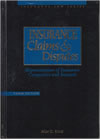 James H. Reich, MD, MPH, is a board-certified Forensic Psychiatrist with extensive civil psychiatry experience who has done hundreds of evaluations.
James H. Reich, MD, MPH, is a board-certified Forensic Psychiatrist with extensive civil psychiatry experience who has done hundreds of evaluations.
After getting his MD from the University of Colorado Medical Center in Denver, Dr. Reich earned his MPH at Yale University and did his psychiatric residency at UC Davis. Dr. Reich has held academic positions at Yale, Iowa, Harvard, and Brown Universities. Currently, he has teaching appointments at the professor level at both UCSF and Stanford University. Throughout his career, he has published over a hundred peer-reviewed publications.
Litigation Support - Dr. Reich’s services are available for civil and some criminal law cases. Clients are assured of his personal dedication to each case. He does high quality research, expert evaluations, writes a solid report, and will testify well. Dr. Reich has been deposed over 50 times.
Areas of Expertise:
- Antisocial Personality Disorder
- Antisocial Behavior
- Sadistic Personality Disorder
- Borderline Personality Disorder
- Competency to Stand Trial
- Depression
- Fitness for Duty
- Generalized Anxiety Disorder
- Psychiatry Malpractice
| - Obsessive Compulsive Disorder
- Panic Disorder
- Anxiety and Alcohol
- Personality Disorders
- Post Traumatic Stress Disorder / PTSD
- Psychiatric Disability
- Morbidity of Dependent Personality Disorder
- Social Anxiety Disorder
- Somatoform Disorder - Hypochondriasis
- Suicide
|
Presentations - As faculty at the Stanford Forensic Fellowship program, Dr. Reich has given two talks to the group. On October 27, 2023, he presented, "What Gets Psychiatrists and other Medical Professionals into Problems with the Law or Regulators." On January 19, 2024, he presented a talk on Psychiatric Disability to the same group. Dr. Reich is also supervising a fellow on his project on competency issues in older physicians.
By: Dr. James Reich
The prevalence of antisocial traits was investigated in a group of veterans who were in treatment at an out-patient psychiatric clinic and who did not meet diagnostic criteria for an antisocial personality disorder. Standardized DSM-III-R interviews were used to diagnose Axis I disorders and antisocial personality disorders and traits.
By: Dr. James Reich
This paper reviews the virtues of applying a dimensional model and/or the more traditional categorical model to classification of personality disorders. The authors suggest how the particular merits of both might be incorporated. A model is proposed that organizes personality typology around a dimension of severity of impairment or dysfunction.
By: Dr. James Reich
To determine whether DSM-III dependent personality disorder (PD) differed in males and females, 30 females and 11 males with this diagnosis were selected from a psychiatric outpatient population. Standardized measures of Axis I, Axis II, and family history were used.
By: Dr. James Reich
To better understand the relationship between panic disorder and paranoid personality, panic disorder patients (N = 28) who were referred to an anxiety disorder clinic in a community mental health center were evaluated for paranoid personality traits on a standardized personality self-report instrument.
By: Dr. James Reich
Medical board discipline findings indicate that psychiatrists are at increased risk of disciplinary action compared with other specialties. NPDB data indicated relatively infrequent problems for psychiatrists. In malpractice, psychiatry accounted for a small percentage of overall claims and settlements. Overall, more years in practice and a lack of board certification increased the risk of legal difficulties.
By: Dr. James Reich
One hundred fifty-nine psychiatric outpatients were examined to determine which of the DSM-III Borderline Personality Disorder (BPD) criteria were most valid in terms of sensitivity, specificity, predictive power positive, and predictive power negative. Combinations of two criteria predicted
By: Dr. James Reich
This article examines the problem of stress-induced personality disorders empirically. Three different groups—state personality disorder, stress-induced personality disorder, and no personality disorder—are compared on clinical symptoms, functioning, and family history.
By: Dr. James Reich
The authors discuss difficulties in the assumptions that underlie Kernberg's Structural Interview method for diagnosing borderline personality organization and demonstrate methodological limitations in the studies that have reported results from its use.
By: Dr. James Reich
There has been little scientific investigation of the relationship between anxiety disorders and alcohol abuse and none examining differences in personality factors between those anxiety disorder patients with and without a history of alcohol abuse. There is evidence, however, for an overlap of alcohol abuse and anxiety disorders.
By: Dr. James Reich
This article examines these pharmacological treatments. It first examines some of the drugs that have been used and some of the evidence for their effectiveness. It then takes the mindset of a clinician and looks at how some symptom clusters might be approached.

 James H. Reich, MD, MPH, is a board-certified Forensic Psychiatrist with extensive civil psychiatry experience who has done hundreds of evaluations.
James H. Reich, MD, MPH, is a board-certified Forensic Psychiatrist with extensive civil psychiatry experience who has done hundreds of evaluations.









